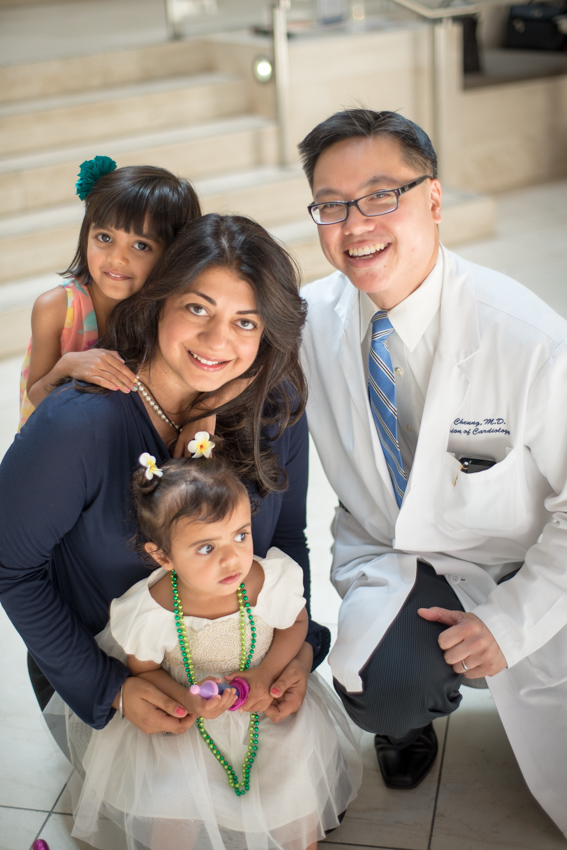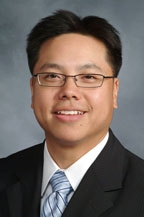
There are arrhythmias, and then there are arrhythmias. Dr. Jim W. Cheung is currently at the forefront of studying a serious arrhythmia known as short-coupled torsade de pointes or PMVT (polymorphic ventricular tachycardia), which can lead to sudden death. Torsade de pointes is a French term that describes the characteristic appearance of the rapid rhythm as seen on EKG. Most people who have life-threatening cardiac arrhythmias often have some type of structural heart disease. However, there is a distinct group of patients (who are often young) who do not have any structural heart disease and may have short-coupled torsade de pointes or other forms of PMVT which can be dangerous. In these cases, proper diagnosis and treatment may be difficult.
“Most people who have life-threatening cardiac arrhythmias,” explains Dr. Cheung, “often have some kind of structural heart disease – due to either myocardial infarction (heart attack) or cardiomyopathy (weakened heart). But there is definitely a subset of people who have life-threatening arrhythmias – and they can become victims of sudden cardiac death – even though their heart is structurally normal. Many of these patients may have an inherited problem that affects the way their cardiac cells handle electrical flow of ions which leads to a propensity to develop arrhythmias.”
The good news is that Dr. Cheung and colleagues have uncovered a potential pivotal new piece to the PMVT puzzle, and their findings were presented at the 34th Annual Scientific Sessions of the Heart Rhythm Society. One of Dr. Cheung’s patients, a young woman in her thirties, was having life-threatening arrhythmia -- exactly as her mother had experienced. She wanted to have a baby and expressed a concern to Dr. Cheung: Could her condition carry through the generations? Although genetic testing can often raise anxieties for a patient, Dr. Cheung and the patient decided to proceed with screening and a discovery was made. A new genetic mutation was found in a cardiac channel called the ryanodine receptor (RyR2) which has since been found to be responsible for this patient’s particular form of PMVT.
According to Dr. Cheung there is a long list of disorders that fall under the umbrella of what he terms “primary electrophysiological disorders” that can lead to arrhythmias in patients with apparently normal hearts. As advances in our genetic understanding of these diseases are made, improvements in our diagnostic tools can lead to life-saving treatments for patients. Through a combination of judicious genetic testing, EKG screening, tailored medical therapy, and minimally invasive surgical techniques (defibrillator implantation and catheter ablation) when necessary, the treatment of patients with primary electrophysiological disorders is becoming more effective . Dr. Cheung’s patient, who played a critical role in the discovery of RyR2-H29D, is now leading a happy, productive life. She is currently working hard to raise public awareness for PMVT.
An expert in cardiac electrophysiology, Dr. Jim Cheung is Director of the Cornell Cardiac Electrophysiology Fellowship Program and Assistant Professor of Medicine in the Division of Cardiology. He graduated summa cum laude in Biochemical Sciences from Harvard University in 1995 and received his M.D. at Harvard Medical School in 1999. He completed his internship and residency training at the Massachusetts General Hospital and his fellowship training in cardiology and cardiac electrophysiology at Weill Cornell Medical Center.
Related Links:

Dr. Cheung’s research was carried out in collaboration with Dr. Andrew R. Marks’ Lab at Columbia University, Albano C. Meli, PhD, and others:

